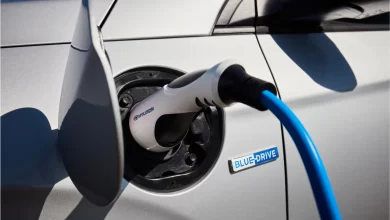New Era In Batteries: A Thousand Kilometers On A Single Charge
"This research brings us closer to a true high energy density lithium-ion battery system," the scientists said

A lithium-ion battery breakthrough using tiny silicon particles and gel polymer will enable electric vehicles to travel more than a thousand kilometers on a single charge, scientists said.
Drivers consistently report that they suffer from range anxiety – the concern about how long a car’s battery will last – as one of the main reasons preventing them from fully switching to electric vehicles.
To address this concern, research teams around the world are exploring new electrode designs to increase the capacity of electric vehicle batteries.
Researchers are trying to use silicon as the electrode material for lithium-ion batteries in electric vehicles due to its high charge storage capacity.
But this remains a challenge as silicon expands more than three times during charging and shrinks back to its initial size during discharge, severely damaging the efficiency and structural integrity of the batteries.
The expansion problem of large silicon particles can become pronounced during battery operation. This poses limitations for its use as an electrode material.
South Korean scientists have now developed a “next-generation” high-energy density lithium-ion battery system that uses small silicon particles and gel polymer electrolytes.
The gel electrolyte in the battery is a critical component that facilitates the movement of charged particles between the positive and negative terminals (anode and cathode).
Unlike the commonly used liquid electrolytes, gel electrolytes are either solid or gel with an elastic polymer structure and have better stability than their liquid counterparts.
By forming chemical bonds between the gel electrolyte and the tiny silicon particles, the researchers dissipated the internal stress caused by volume expansion during battery operation.
“The resulting interpenetrated system exhibited outstanding properties in reducing volumetric expansion while maintaining high ionic conductivity,” the scientists wrote.
According to the study, the new “cost-effective” gel electrolyte system exhibited conductivity similar to conventional batteries using liquid electrolyte, while also achieving an improvement in energy density of about 40 percent.
“We used a micro-silicon anode, yet we still have a stable battery. This research brings us closer to a true high energy density lithium-ion battery system,” the scientists said.
According to the researchers, the findings underscore the potential of this new method to increase energy densities in future batteries.
This work could revolutionize energy storage systems and enable electric vehicles, which now travel about 700 kilometers on a single charge, to reach a range of 1,000 kilometers.






